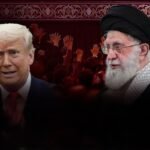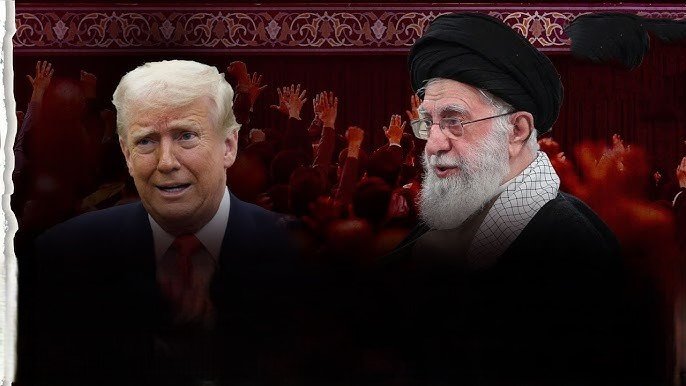Compiled by Mohammad Tarique Saleem
In a dramatic revelation reported by Reuters, two senior U.S. officials disclosed that former President Donald Trump recently blocked an Israeli plan to assassinate Iran’s Supreme Leader, Ayatollah Ali Khamenei. The officials, who spoke on condition of anonymity, stated that the Israeli proposal came in the wake of a massive military strike launched by Israel on Iranian nuclear facilities. The goal was to halt Iran’s nuclear progress, which has long been a point of contention between Tehran and both Western and Israeli intelligence services.
The proposal, as relayed by Israeli counterparts, was presented during intense back-channel communications between Israeli and American leadership. According to Reuters, Israeli intelligence claimed they had a rare opportunity to target and eliminate Khamenei, potentially dealing a major blow to the Iranian political and religious hierarchy. However, Trump, known for his strong support of Israel throughout his presidency, rejected the idea.
“Have the Iranians killed an American yet? No. Until they do, we’re not even talking about going after the political leadership,” one senior U.S. administration official told Reuters, underlining Trump’s hesitance to escalate into a direct political assassination a red line in international diplomacy.
Though it remains unclear whether the veto was communicated directly by Trump or relayed through top-level intermediaries, sources confirmed to Reuters that he maintained regular contact with Israeli Prime Minister Benjamin Netanyahu during the period. Trump’s decision appeared to be guided by a strategic calculation rather than sympathy, seeking to avoid a wider war that could engulf the Middle East and scuttle any chance of resuming stalled U.S.-Iran nuclear negotiations.
When asked by Fox News’ “Special Report with Bret Baier” about the Reuters story, Netanyahu dismissed the question. “There are so many false reports of conversations that never happened, and I’m not going to get into that,” he said. He added cryptically, “We’ll do what we need to do. And I think the United States knows what is good for the United States.”
Notably, U.S.-Iran nuclear talks that were scheduled to take place in Oman were abruptly canceled following Israel’s strikes. Trump, in a separate interview with Reuters on June 13, said, “We knew everything” about the Israeli actions, hinting at deeper American awareness and possible coordination, though not direct involvement. The Reuters report sheds light on the fragile and dangerous interplay of regional alliances, and on Trump’s calculated restraint at a moment of potential ignition.







